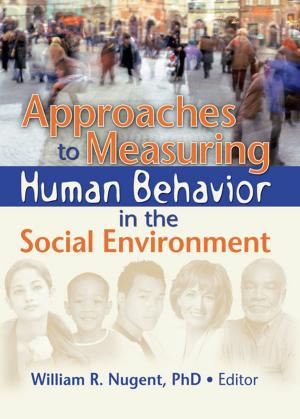Troubled Neighbors
The Story of US-Latin American Relations from FDR to the Present
Nonfiction, Social & Cultural Studies, Political Science| Author: | Henry Raymont | ISBN: | 9780429983061 |
| Publisher: | Taylor and Francis | Publication: | March 5, 2018 |
| Imprint: | Routledge | Language: | English |
| Author: | Henry Raymont |
| ISBN: | 9780429983061 |
| Publisher: | Taylor and Francis |
| Publication: | March 5, 2018 |
| Imprint: | Routledge |
| Language: | English |
At one time the US and Latin America defined themselves in common as new and American, in contrast to the old, European order, and they enjoyed a period of friendship and cooperation based on that sustaining sense of commonality. With the advent of the Cold War, however, hemispheric solidarity and alliance faded fast, as the US became preoccupied with other regions of the world it deemed of deeper strategic significance. The United States and Latin America now largely define each other as negative reference points, instead of as neighbors and allies. In Troubled Neighbors, Henry Raymont-journalist for four decades, author, lecturer, teacher, and consultant-presents a journalist's observations on the pendulum swings in US-Latin American relations over the past half-century. The book is organized chronologically, with a chapter devoted to each of the administrations from FDR to Bill Clinton and an epilogue covering the first term of the George W. Bush administration. Straightforward organization: The book is chronologically organized, with a chapter devoted in turn to each administration from FDR to George W. Bush. Experienced author, an expert in the field._
At one time the US and Latin America defined themselves in common as new and American, in contrast to the old, European order, and they enjoyed a period of friendship and cooperation based on that sustaining sense of commonality. With the advent of the Cold War, however, hemispheric solidarity and alliance faded fast, as the US became preoccupied with other regions of the world it deemed of deeper strategic significance. The United States and Latin America now largely define each other as negative reference points, instead of as neighbors and allies. In Troubled Neighbors, Henry Raymont-journalist for four decades, author, lecturer, teacher, and consultant-presents a journalist's observations on the pendulum swings in US-Latin American relations over the past half-century. The book is organized chronologically, with a chapter devoted to each of the administrations from FDR to Bill Clinton and an epilogue covering the first term of the George W. Bush administration. Straightforward organization: The book is chronologically organized, with a chapter devoted in turn to each administration from FDR to George W. Bush. Experienced author, an expert in the field._















